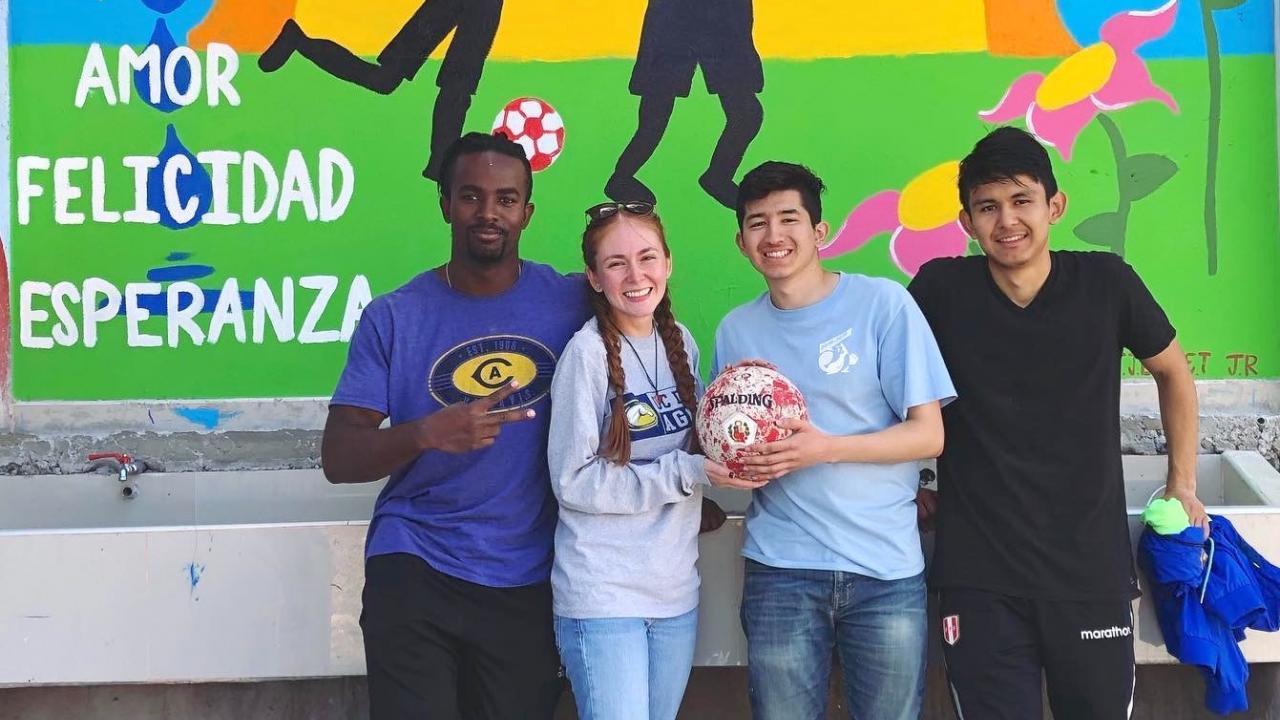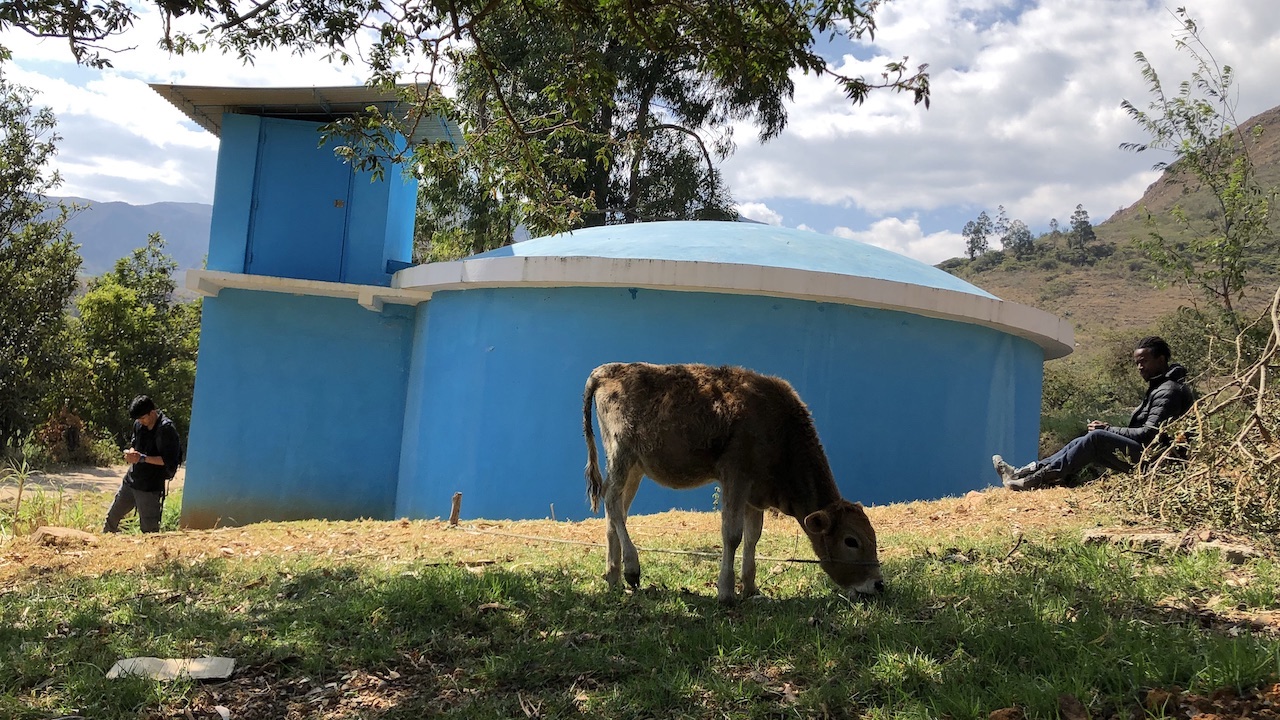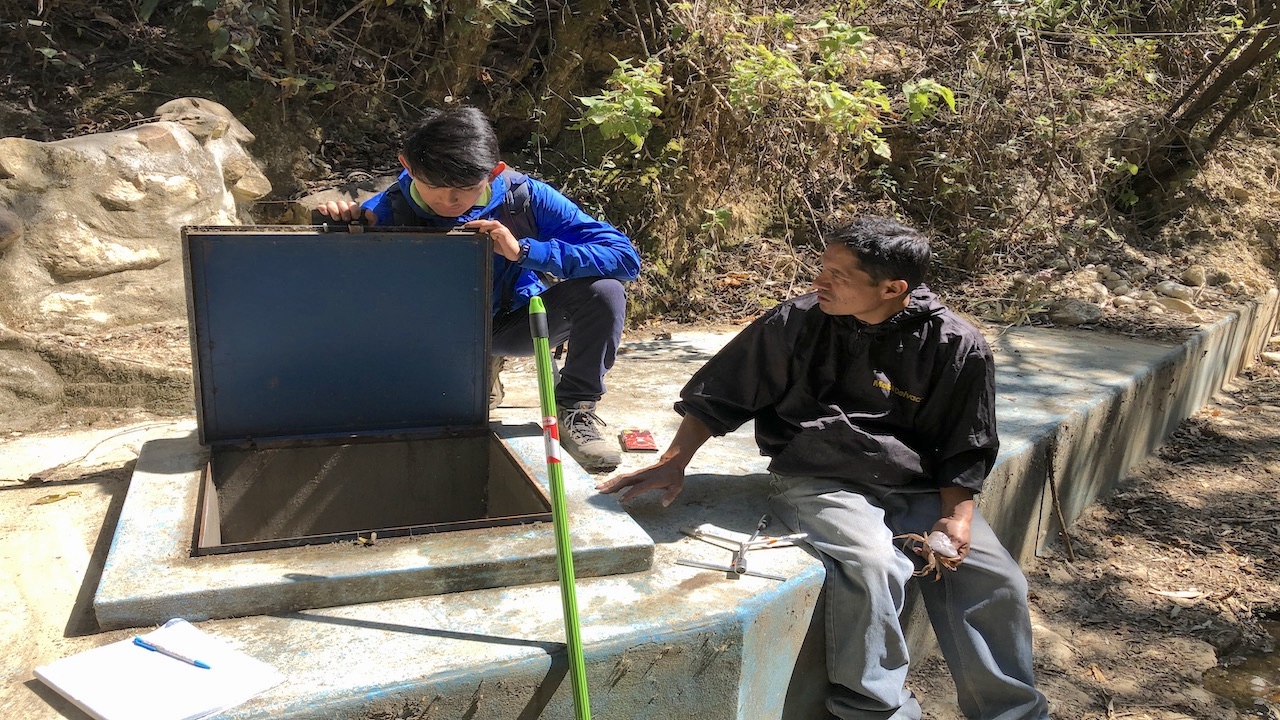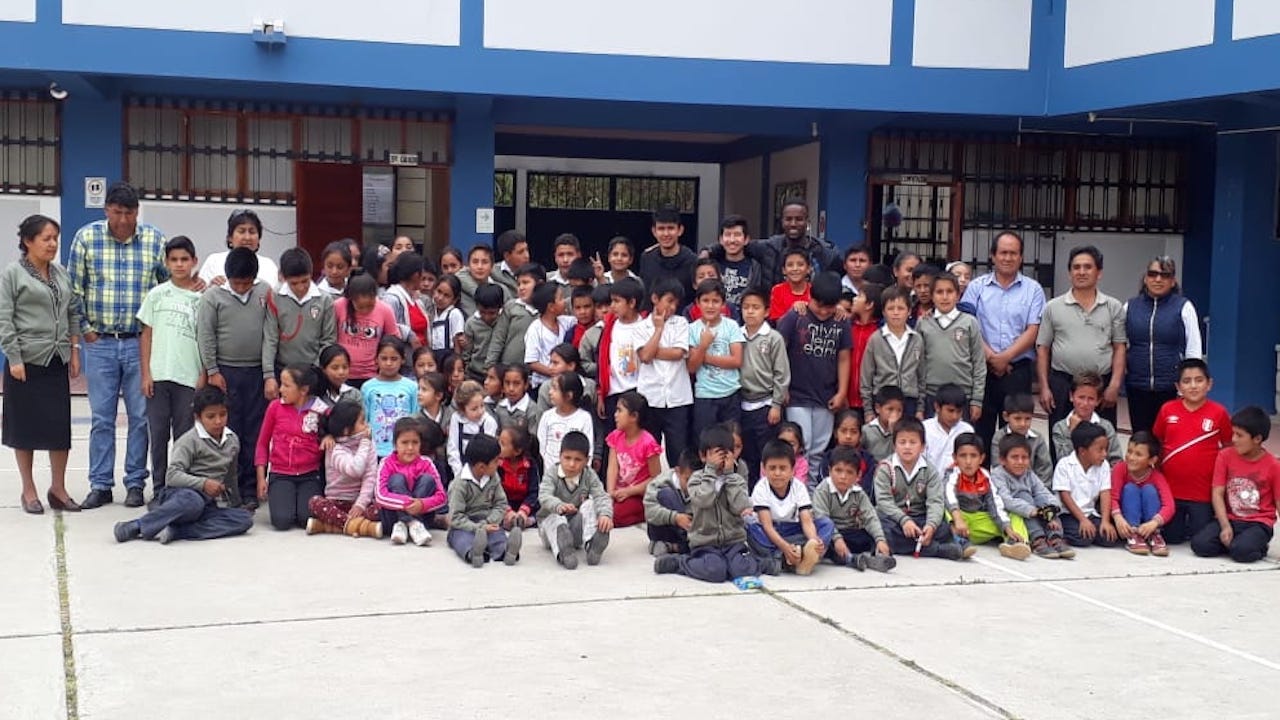
UC Davis - Latin America and the Caribbean Spotlight: Students Put Classroom Knowledge Into Action in Peru
Engineers Without Borders Team Up With La Huaylla Community To Improve Water Access
By Cecilia Linares and Alejandra Godinez Gomez, Global Centers interns, Global Affairs
Life-changing would be an understatement in describing UC Davis students Jhonatan Romero and Julian Lopez’s experience in La Huaylla, Cajamarca, Peru in the summer of 2019. “It was a very interesting experience and as a first-time traveler, I was nervous,” Lopez said. His nerves were worth it though upon their arrival in Peru.
“I was taken back at the sight of a whole new world, the serenity of nature, the food, and the language,” Lopez said.
For Romero, a Peruvian native, returning home was extremely valuable as he saw it as a way to help give back to the community and his people. “The air is different the moment you land and the food is not replicable,” Romero said.
Romero and Lopez are civil and environmental engineering majors in the College of Engineering and members of the UC Davis chapter of Engineers Without Borders. In 2019, they were awarded grant funding and support for their monitoring and evaluation trip to Peru through the UC Davis Global Affairs Blum Center grants.

The Peru Project is an ongoing endeavor of UC Davis’ Engineers Without Borders chapter, a student-run, non-profit organization focused on providing engineering expertise and help to developing areas in need. The project, which began in 2016, seeks to provide a reliable source of potable water to a community in La Huaylla, Cajamarca, Peru by building an 80 cubic meters reservoir with a chlorination system and renovating two existing spring boxes.
“Their previous water system consisted of a 30 cubic meters reservoir and three spring boxes which had a limited capacity to capture and store water. With the new infrastructure, water shortage is no longer a recurrent problem,” Lopez said.
Romero, who is now in his fifth-year as a civil and environmental engineering major, has taken on several roles working in the Peru Project. He has been part of the regular team, then the traveling team as administrative lead and technical lead, and currently he is co-lead for the project. “As a project lead, I oversee our different teams and ensure their progress. Additionally, I make sure everyone holds a role they enjoy,” he explained.
Lopez became involved his first year at UC Davis, and likewise has assumed several roles for the project. In his first year, Lopez was a fundraising lead for the traveling team. His duties included budgeting, and he tracked and recorded all expenses in addition to household surveys in the community. “Currently, I am the technical lead tasked with creating water quality testing outlines as well as making sure that household questions are outlined in the information,” he added.

Real-World Exploration to Help Others
Romero and Lopez’s passion for collaborative work with communities abroad was reaffirmed through this opportunity.
“It goes beyond engineering; we can really help people with our degrees. I want to explore more and use that exploration to help others,” Lopez said.
Their goal was to supply the community with a reliable source of water and in doing so they faced many challenges. “Everyone says they want to help people, but many are not aware of what it looks like, what it takes, and how hard it can be,” Lopez said.
Recalling his experience in the community, Lopez remarked: “Looking back, I would take the time to appreciate my time there. Going through an injury and food poisoning made me question my decision of traveling to Peru, but I soon realized my place.”
He added, “I realized it was no longer about me, rather about the community.”

Through this project, the students had the chance to experience first-hand humanitarian work.
“This was a real-world application. I learned how to work with different people and the different roles they played. We got to meet with the mayor, community leaders, and experience at first hand the power structure not normally seen in the classroom,” Lopez said.
For Romero, participating in this project confirmed that he wanted to return to Peru and take on similar projects.
“Being Peruvian, I have the desire to give back to Peru, help the community,” Romero said. “We want to make sure the community is able to take over the project after our departure. We do so by providing the community with an operation maintenance manual that walks them through any maintenance they may have to do.”
In spring 2021, Romero will begin a master’s degree program in the Civil and Engineering Department at UC Davis.
For Lopez, it was fascinating to apply what he has learned in the classroom in the real world and in real-time. Above all, he was able to see the different roles people play in completing a project. Romero notes: “I recommend students to involve themselves in these projects because they really show you how real-world projects play out.”
Despite all of the changes that the COVID-19 pandemic has caused for the Peru Project, the team plans to conduct one last monitoring and evaluation trip to ensure that the system continues.
About Global Affairs at UC Davis
Global Affairs brings the world to UC Davis, welcoming more than 10,000 international students, scholars and leaders, and hosting programs that inspire global curiosity, understanding and engagement. Compelled by the valuable outcomes of thinking globally, we make transformative opportunities a reality by supporting the thousands of students and faculty learning and researching globally—and by facilitating collaborations that tackle the world’s most pressing challenges through more than 150 global partnerships.
Putting our vision of a UC Davis community that engages, thrives, and leads in this interconnected world into action, Global Affairs is in pursuit of an ambitious goal: Global Education for All.